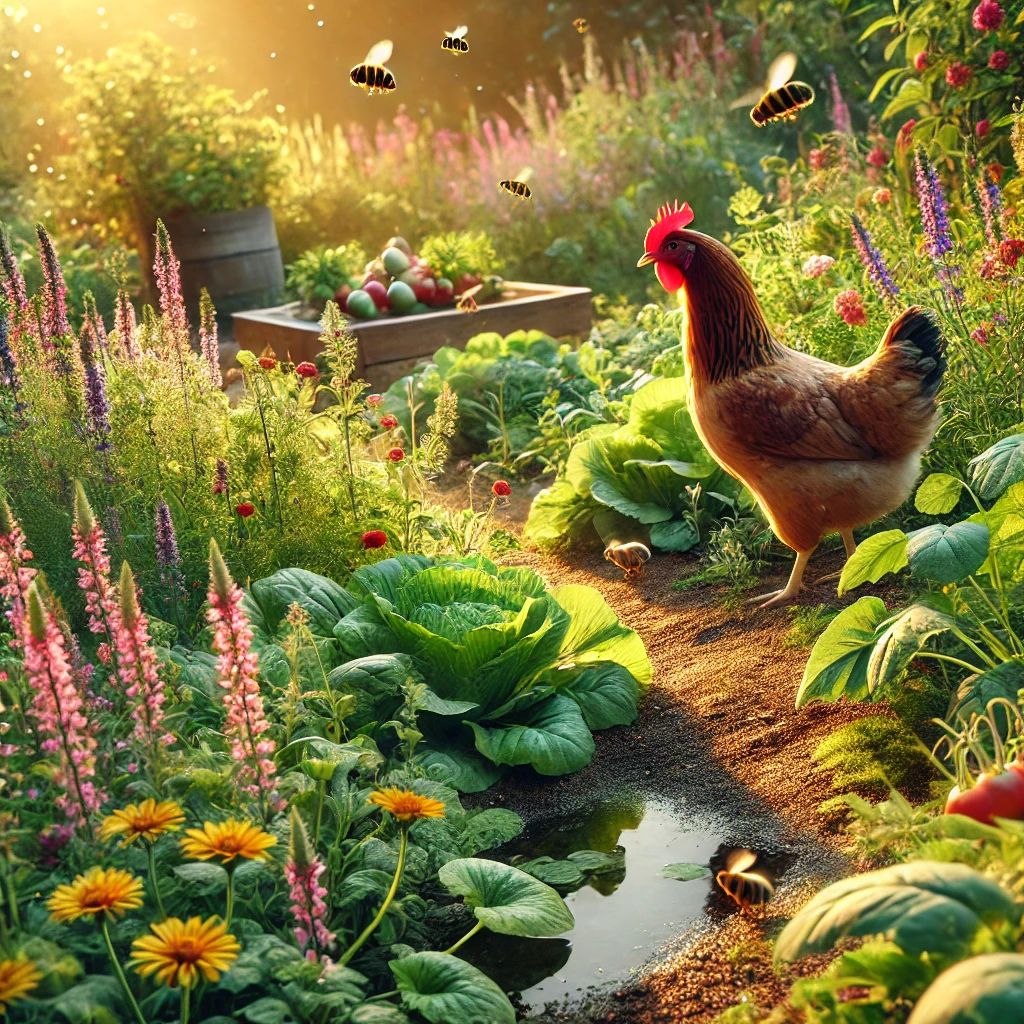The Importance of Permaculture and Our Role
Introduction
🌱 Did you know that industrial farming is responsible for 70% of global freshwater use, while also degrading the very soil it depends on? 🌎 As the climate crisis accelerates, it’s clear that we need better solutions—and permaculture offers one.
Permaculture isn’t just about growing food; it’s about creating systems that thrive in harmony with nature. It’s a way to work with the Earth, not against it. At Return to Vital Roots, we believe permaculture holds the key to a sustainable future.
In this blog, we’ll explore what permaculture is, why it’s so important today, and how each of us has a role to play in creating meaningful change.
What Is Permaculture?
💡 Permaculture is a design philosophy inspired by the patterns and relationships found in nature. The term combines “permanent” and “agriculture,” reflecting its goal of creating sustainable, regenerative systems.
At its heart, permaculture focuses on:
🔄 Observing and Interacting: Learning from natural systems before taking action.
♻️ Producing No Waste: Turning waste into valuable resources like compost.
🌞 Catching and Storing Energy: Capturing water, sunlight, and other resources for future use.
🌿 Integrating Rather Than Segregating: Building interconnected systems where plants, animals, and people thrive together.
Real-World Example: In urban neighborhoods, permaculture gardens are transforming unused lots into thriving ecosystems that provide fresh food, reduce heat, and bring communities together.
Why Permaculture Matters
🌳 Environmental Benefits
Permaculture restores balance to ecosystems by regenerating soil, conserving water, and fostering biodiversity.
For example, mulching reduces soil erosion, while crop rotation improves fertility and minimizes pests.
🍎 Food Security
Industrial farming has made food systems vulnerable, but permaculture creates resilience. Local, small-scale systems can provide fresh, nutritious food while reducing dependence on harmful chemicals.
Imagine turning your backyard into a thriving edible garden that nourishes your family year-round.
🌎 Climate Action
By planting trees, improving soil health, and reducing waste, permaculture actively combats climate change. Healthy soil sequesters carbon, while diverse ecosystems buffer extreme weather events.
Our Role in Making a Difference
You don’t need a farm or extensive resources to embrace permaculture. Here are a few small but impactful steps you can take:
♻️ Compost Your Waste
Turn food scraps into nutrient-rich soil instead of sending them to landfills, where they produce harmful methane.
🌼 Plant Native Species
Support pollinators and local wildlife by growing native flowers, shrubs, and trees that thrive in your region.
🥕 Grow Your Own Food
Whether it’s herbs on a windowsill or vegetables in your backyard, growing your own food reduces your environmental footprint and reconnects you with nature.
🛒 Support Local Farmers
Buy from farmers’ markets or join a community-supported agriculture (CSA) program to invest in sustainable agriculture.
📣 Educate and Advocate
Share what you learn about permaculture with others and advocate for sustainable practices in your community.
Every small step we take contributes to a larger movement toward sustainability.
Conclusion
🌿 At Return to Vital Roots, we believe that permaculture is not just a solution—it’s a way of life that empowers us to reconnect with the earth and each other. By embracing these principles, we can create systems that are not only sustainable but regenerative, building a brighter future for generations to come.
So, what role will you play in this journey? Whether it’s planting your first seed or advocating for community gardens, your actions matter. 🌟 Together, we can heal the planet, one root at a time.
📧 Explore more resources and join our mission by signing up for our newsletter or following us on social media.
